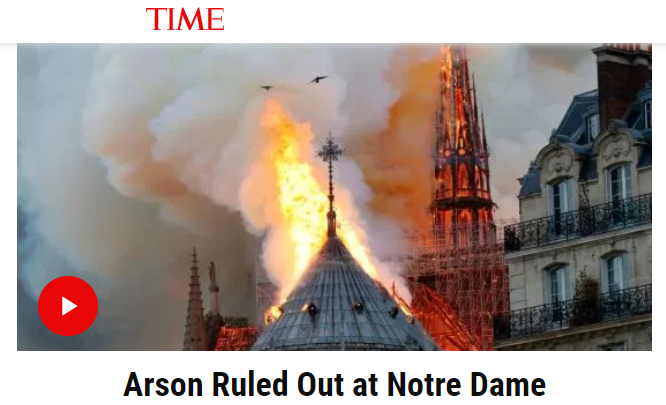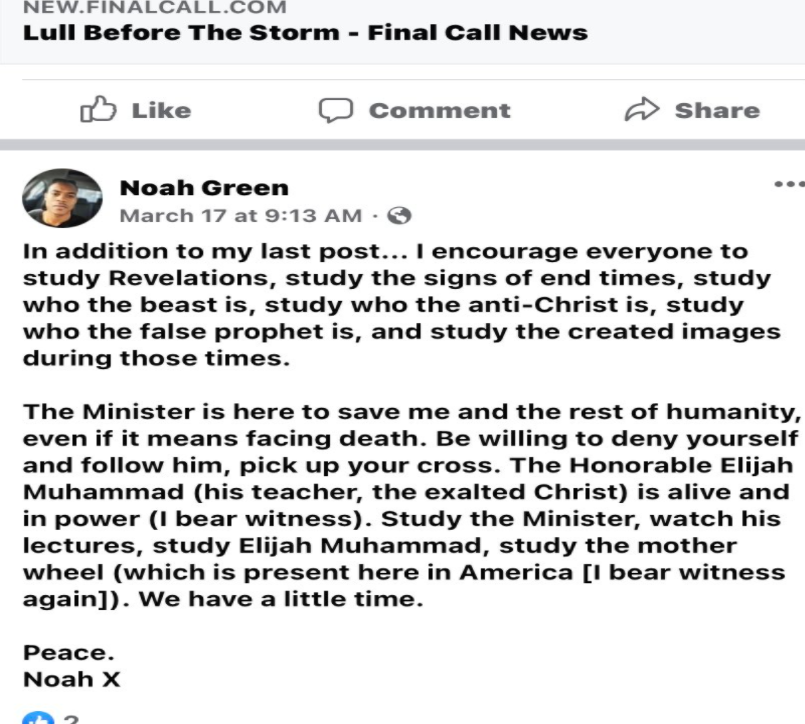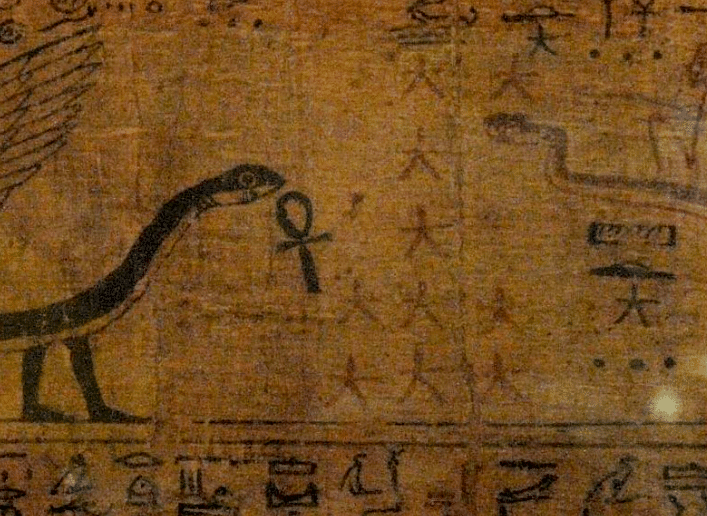and likely ‘at the day of Weeks’ [as he did unto John in Rev.1] — text overview — [version ; 2025-06jun.03] |
| content : … the appearance of Christ unto Daniel is similar as unto John in Revelation 1 , while per content that date may have been ‘at the day of Weeks’ where Christ even speaks about “My return…” ! it’s a probable case for Daniel still had the Scroll (copied by Jeremiah) before it was corrupted … [text-overview of this chapter theme that likely will not further be restored] |

|
theme
what day did Christ appeared to Daniel (-and to John) ?
… this is rather important in our present situation ,
and for several contextual reason it must have been ‘the day of Weeks’ —
in both cases He appears in his divine being and with a voice as a trumpet (!)
he tells future events until the day of his return , so that both appearances
strongly suggest a foreshadowing óf that day ;
and where in Daniel shows a (corrupted-) date of that visitation similarly John
in Revelation 1 mentions a time frame – which however neither make sense :
(10)
“I was in the Spirit on the Lord’s day ,
and heard behind me a great voice, as of a trumpet,”
now please , not to nitpick ,
but the common understanding ‘that John was in a trance’ (‘being in the spirit’)
is a phrase that doesn’t appear in prophets because God is never vague about
spiritual matters and certainly would not resort to ‘New Age’ terms
[while the second time that allegedly ‘John was in the spirit’ it simply said that
Miss took him to the eden-gate — just as She did with Ezekiel] ;
equally vague is the also by Esau phrased “Lord’s + day” : which one ?
many well-drilled in the christianity of Adam’s church think ‘it was on a Sunday’
while others suggest “Passover” , and all agree “(that he wasn’t transported in
the spirit to-) the Lord’s day as the start of the Tribulation” :
no he wasn’t yet the link tó that day is absolutely there !
and as opted in the ‘Acts 1-2’ (-page) He may return ‘at Weeks’ even though
feasts as Atonement – as the start of the Tribulation – and Tabernacles will not
have come to pass in real-time still , also here He appears to Daniel while still
a number of real-time future events had to occur !
keeping this in mind , first Revelation :
I=it happened – in=on – (the-) spirit=appointed time (pneuma=prothesmia)
b
in=as – the – day (‘swapped’) of – lord=Weeks or ‘Pentecost’ (kyriakê=pentêkostê) ,
c
[=that] I hear – behind – me – (a-) great – voice – as of – (a-) trumpet ;
here ,
this is a proper description like said in prophets — the only problem we still have
is whether it wrote ‘Weeks’ or ‘Pentecost’ : you see how the latter root matches
very well yet we still hold ‘the 49th day’ instead of ‘the 50th’ so that (-sabbaton)
is favorite yet quite a different root
now the time frame in Daniel :
… the question in lines 1-5 is “why , after some vision , Daniel was mourning for
three weeks until ‘the 24th of the first month’ when Christ appeared unto him” ? ,
since ‘three weeks’ is an illogical number and so is ‘the 24th of the first’ as some
three days after Unleavened and therefore not ending at any sacred day ;
if we modify the time-frames just a little ,
a logical period would be “seven + weeks” — as from Passover till Weeks day ,
or alternatively “the 40 days” starting at Unleavened — our current time frame ! ;
yet it’s hard to see which one since text & buildup are very corrupted ;
now please ,
it just feels Too Much that here agáin he ‘is mourning’ just as he did in previous
chapter 9 after having a vision and even in 8 he was ‘shocked’ — so that Esau
must have invented several of these to hide his cut & pasted sections ofcourse
considering the buildup ,
hardly “an angel Gabriel” can have appeared unto him (until chapter 10) since
that feels uneasy as conflicting with Christ in this chapter , while God never
works with ‘secondary angels’ in prophets for the same reason ,
so that probably Miss spoke with him – as with Ezekiel and see above – which
suggests (us) that this was a deliberate created juxta where God explained the
history until this point and now Christ would explain the future !
therefore we must have an indication of ‘Unleavened’ especially related to his
sacred scroll : and we háve some lines about that – in previous chapter 9 !
in line 2 there ,
he talks about “having understood the Scroll” – which still was uncorrupted ! –
so that he also must have declared it — and that at Unleavened ! and even a
(corrupted-) date is given :”in the first (‘one’) + year of + his reign” (per line 2)
yet as “on the [+twenty] + first + day of + [..] the month (mlk=chdsh)” that
is a proper description of Unleavened ;
subsequently , the next section of “the prayer” of Daniel must have been his
repeat as “in his own words” of the Scroll that he just before had declared ;
so that the main theme of that must have been ‘about Eden’ where the line
as “the great evil under the heavens” was about ‘the crime to our Originals’
since a while back is the (corrupted-) story about ‘the fiery oven’ ….
then this chapter 10 ,
… starting with “how he mourned for three full weeks” ,
and though póssible not so credible is next (3) “I ate no pleasant bread and
flesh and wine came not in my mouth” — for the most logical , after declaring
the Scroll and having made his petition to God is ‘that he kept pleading‘
instead of mourning (aBl=rB) – and who knows he hóped for an answer –
while next will appear Christ who refers back to the pleading (in 12) , so that
(3)
in – these days – I – Daniel – was – mourning=pleading
b
three=six (shlsh=shesh) – full (‘days’) – weeks ; [‘after Unleavened’]
(4)
[…. unknown actions …..]
b
until – the three=seven (shlsh=shbo) – full – weeks – (were) expired ;
(5)
and [=on] the day of – twenty=Weeks (oshrm=shbo)
b
and=as the four=appointed time (arboe=moed) +
c
[=in] the·first (=tampered) = the third (rshn=shlsh) – month , I – was ……
d
[…. unknown — but ‘Hiddekel’ (ch-ideqqel) was “keeping the feast’ (?) (ch-agag) ….] ;
here ,
the ‘Hiddekel’ as a plausible corruption of “feast” is important for us in the
case that all the used terms as (six and seven-) weeks and appointed time
were deliberately written to point to ‘Weeks’ , right ,
while “hand + the·stream + the·great” anyway was tampered & suspicious
and has no function – while Daniel would need to travel 50 miles to get there
[we don’t know what it said , perhaps just “I was on my own in my chambers”
even though KJV 7 suggests that “the others fled that were with him”]
[line 20 : His factual return ? :]
… the buildup of lines 5-19 is very erratic (‘corrupted’) as reading unpleasant
wherefore He could have said something “about his return in the end days”
yet immediately related to the Scroll” since that still is the covered-up theme ;
and though next line is famous it’s difficult to decode even for us : since the
next chapter 11 is about “the (2000 year-) era of mixed-christianity becáuse
of the corrupt scroll that long theme must be introduced hére ,
(13)
“But the prince of the kingdom of Persia withstood me one and twenty days :
but, lo, Michael, one of the chief princes, came to help me ;
and I remained there with the kings of Persia.” ,
as
the kingdom=adm-man (‘Adam’) (Melkth=adM) +
b
prince=hates (shr=shni) – the persia=scroll (phrs=sphr) [‘he-hates adm scroll’]
c
(and will) withstand me (?) – [=until] (?) – the [=latter] (?) – days ,
b
for behold ! , [+his] michael=sons (mikal=benim) of – one=Ammon (achd=ammn)
c
(as-) the·first-ones = the evil (RAshn=RA) – the·chiefs = the=sons of Esau (shorm=oshe)
d
(have) arrived – to help me=him
e
[…. 5x but one should be ‘to corrupt’ …..] – the persia=scroll (as in b) ;
here ,
it’s unclear whether ‘a specific number of days were given’ since in previous
chapter 9 He works with “[70-] weeks” — perhaps for Legal reasons He did
show the time-gap ‘until the 70th week (start of the restoration of the scroll)
in the form of ’21 days’ as ‘centuries’ ;
where the [PHRS] inversal is one of Esau’s favourites ;
but then in next line 20 shows ‘I-shall-return’ as an important phrase for us ,
and again Esau used his ‘Persia prince’ deflection (so it’s the same theme) :
(20)
“Then said he, Knowest thou wherefore I come unto thee ?
and now will I return to fight with the prince of Persia:
and when I am gone forth, lo, the prince of Grecia shall come.”
as
then – he says : know you ! – to=that what=like – I came – to you – now (‘swapped’) ,
b
and=so – I (shall) return – to=when – the with=sons (om=bnim) of – prince=Ishral (shr=ishrl)
c
(will have) fight=restored (or ‘declared’) – the persia=scroll (as 13)
d
and I=IEUE (ani=ieue) – (will) go forth=accept (itsa=ratsn) >> [+him] [< at Weeks]
e
and behold + chief of + greece + comes ; [< can be several things]
here ,
it can have said “they (‘you & we’) will understand …” that was the intent ofcourse
but because Esau swapped many lines to conceal the proper subject we leave it ;
also : it can have said “on the same DAY that I have come to you , ….” but then
perhaps we be pushing our luck — and we’re already happy with the context ;
either way this line follows 13 very well so that the Weeks theme appears solid ,
having used the maximum amount of useful lines
closing :
perhaps here right after appearing to Daniel He told the ’70 weeks’ section
(now at the end of previous chapter 9) because those were about himself
as describing the future-time ;
then explaining “why that be a long time-frame” per the scroll lines above ,
continuing with a more detailed (2400 year-)timeline in next chapter 11



























